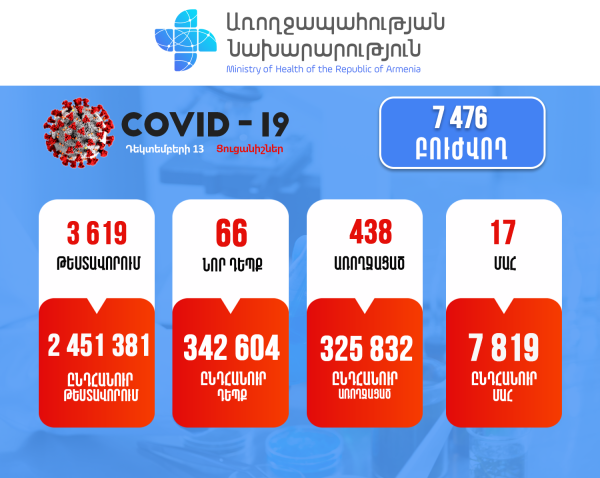The European Commission has today signed an agreement worth €35 million with the BGK, Polish Development Bank, to set up an innovative arrangement to support EU Member States in the delivery of COVID-19 vaccines to the Eastern Partnership countries.
This follows an agreement between Commissioner for Neighbourhood and Enlargement, Oliver Várhelyi, and Prime Minister of Poland, Mateusz Morawiecki, to step up COVID-19 support in line with current Eastern Partnership priorities. Together with Poland, the European Commission has designed an innovative arrangement to increase equitable access of vaccines in the region.
Commissioner for Neighbourhood and Enlargement, Olivér Várhelyi, said:
“I am grateful that Poland has stepped forward and agreed to coordinate this arrangement which will undoubtedly help save lives in our partner countries by increasing vaccine coverage. This is EU solidarity in action that will help accelerate the post-pandemic recovery in the region and increase overall long-term health resilience, which is one of the priorities with the Eastern Partnership”.
Poland, being a co-author of the EU’s Eastern Partnership policy, has been supporting closer cooperation with the Eastern partner countries for years, including strengthening the state structures and social infrastructure of these countries.
Read also
Minister of Foreign Affairs of Poland, Zbigniew Rau, said: “Eastern Partnership countries are among the main priorities of Polish development policy with numerous project and initiatives financed and carried out every year. This Team Europe initiative facilitated and coordinated by Poland aims at ensuring free, fair and sustainable access to vaccines against COVID-19 for the Eastern Partnership countries is yet another example of solidarity with this region. Poland, in consultation with the European Commission, will have a coordinating role in the process of distributing the vaccines.”
The delivery of vaccines by EU Member States under the coordination umbrella of Poland is an expression of solidarity with Eastern Partnership countries in the common battle against the pandemic and its social and economic consequences.
The role of the Polish Ministry of Foreign Affairs will be to help match available vaccine doses for sharing across Member States, with evolving needs in Eastern Partnership countries and oversee any necessary arrangements with vaccine manufacturers and ensure adequate communication and visibility of Team Europe vaccine solidarity both in the Eastern Partnership and the EU.
In case of resale, BGK, Polish Development Bankwill use the EU contribution to compensate donor Member States for the vaccines on a not-for-profit basis. The programme will run until June 2023 or until the EU contribution is exhausted.
Beata Daszyńska-Muzyczka, President of the Management Board of BGK, the Polish Development Bank, said: “In this project, run jointly with the Polish Ministry of Foreign Affairs, we play for the first time the role of a partner of the European Commission in distributing development aid to other countries. We are helping to combat the coronavirus pandemic – thanks to our joint efforts, between two and a dozen million vaccines will reach those in need in Eastern partner countries. Participation in this project would not have been possible for us if we had not previously obtained Commission accreditation and implementing partner status. This is another step in tightening cooperation with European institutions and thus strengthening the role of our country in the international arena.”
This €35 million from the Neighbourhood, Development and International Cooperation Instrument (NDICI) is a demonstration of EU’s stepped-up action as part of Team Europe’s vaccine-sharing efforts, to jointly address the pandemic in support to our partners. According to WHO, the average uptake of a complete COVID-19 vaccine dose series in the six countries stands just 28.7% at the beginning of December 2021, while among health care workers it is 70.3%. The mechanism will help partner countries reach vaccination coverage closer to the WHO global vaccination strategy targets: 40% of each country’s population by the end of 2021, and 70% by mid-2022.
The first delivery under this mechanism is foreseen in the coming weeks from Portugal to Armenia. A number of other Member States have already signalled their willingness to participate in this programme.
Background
The EU’s support to the Eastern Partnership in overcoming the consequences of the pandemic amounts to over €2.5 billion to help tackle the health crisis and socio-economic recovery. The Eastern Partnership covers Armenia, Azerbaijan, Belarus, Georgia, Moldova, and Ukraine.
Around a third of all administered doses in the Eastern Partnership has been provided by the EU, either directly through vaccine-sharing, or indirectly through COVAX.
The action complements major efforts by the EU to reduce the COVID-19 health impact by ensuring a rapid and safe deployment of COVID-19 vaccines and fostering structural changes in health systems. At the outset of the pandemic in early 2020, the EU-funded the provision of critical equipment and technical assistance through the World Health Organisation (WHO). Since February 2021, another EU-funded WHO programme supports Eastern Partnership countries with their vaccine absorption capacities by enhancing preparedness and deployment capabilities.
The action is complementary to COVAX, the vaccines pillar of the Access to COVID-19 Tools (ACT) Accelerator: a global collaboration to accelerate the development, production, and equitable access to COVID-19 tests, treatments, and vaccines. Team Europe is one of the lead contributors with over €3 billion for the COVAX Facility, which remains the key global vehicle to ensure fair and equitable access to these vaccines and delivers on international vaccine solidarity.





























































